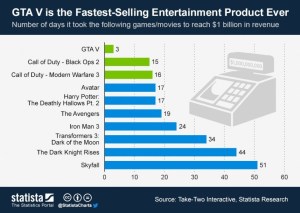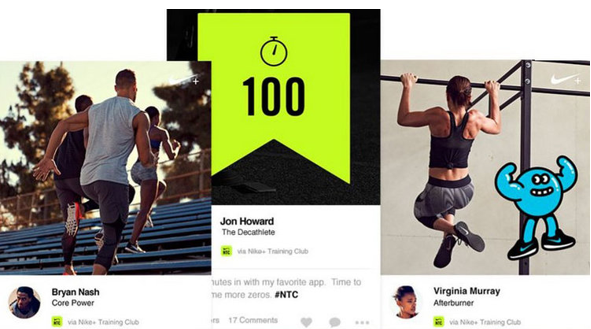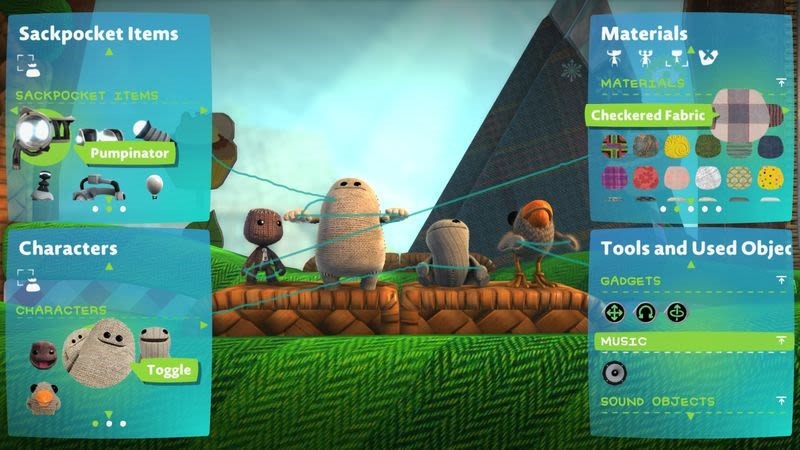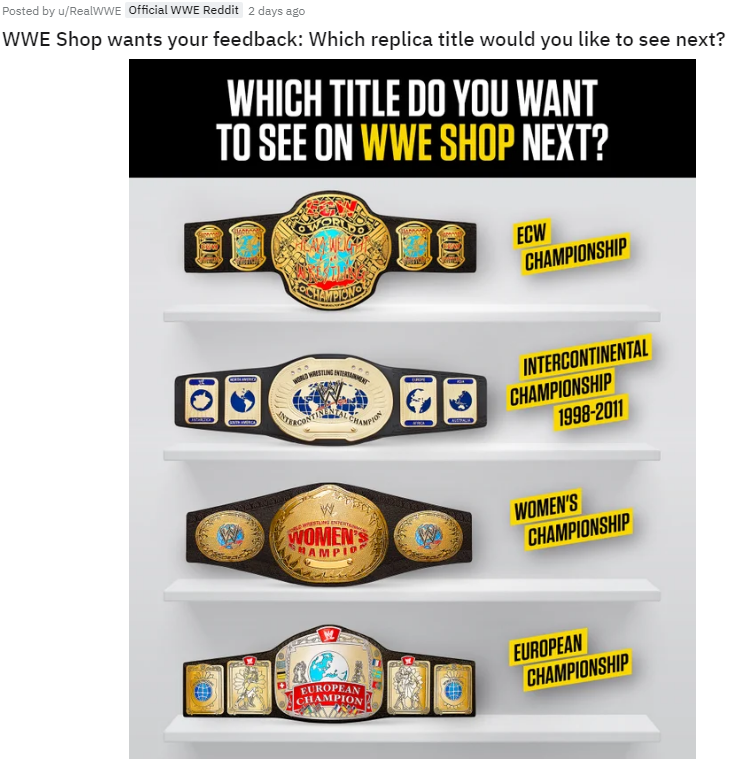The video game industry is truly unrecognisable from its formative years – a once ugly duckling that’s transformed into a beautiful, albeit extremely greedy swan. In the past gaming was a hobby (wrongly) associated with society’s rejects and lonely men in their parent’s basements but it’s exploded with acceptance to be a huge part of 21st century culture.
To label yourself, or be labelled as a ‘gamer’ is now highly fashionable, and the industry has flourished to become arguably the biggest entertainment sector on the planet. Earlier this year, Grand Theft Auto V quietly and unassumingly became the single best selling entertainment product ever – selling 95 million copies and generating over £5 Billion in revenue since its release in 2013.
Most big releases now have budgets to rival Hollywood blockbusters but despite this seismic shift in cultural appreciation, demographic and revenue, the industry as a whole has not lost its small-town charm or sense of community. Yes, there are current trends, like the inclusion of loot boxes that hint at a more monetised agenda further down the road, but the industry still pioneers one thing better than any other sector – openness with customers. Some gaming publishers have seen their business grow from a team of ten to ten thousand, yet their business model and, more importantly, their insistence on customer input, forums and feedback has survived largely unchanged. Transparency with their fans has remained at the forefront of their ethos. In fact, several recent business practices that have been heralded as ground-breaking have been prominent in the gaming industry for nearly twenty years. There is no greater example of this than the recent trend of organisations attempting Community Management.

‘Community management’ has taken a significant semantic change over the last few years. Whereas Social Media Marketing revolves around the creation and distribution of content to generate new customers (with a side order of customer service), community management puts existing customers first, relying on their input to further understand their brand sentiment and most interestingly, let them shape future products or services.
Games such as the iconic, and now rather raddled Runescape (2001) has maintained incredible longevity and consistent player numbers largely due to their inclusion of polls and message boards very early on in to the games lifespan. These polls offered players the opportunity to vote and shape the future of the game. From opinion polls for holiday themed content to bigger, more substantial decisions like changes to the games UI or even the price. Players could only take part in the polls if they’ve surpassed a certain level of progression, bypassing any bot or outside source manipulation. Whilst this collated the ‘fans’ long term desires for the game, the message boards offered Jagex an opportunity to listen and interact with their customers in real time, long before ‘social listening’ was even a concept.

Polls and customer feedback are common place today but the ability to have a say in the future direction of a business as simply a fan or a customer is still very seldom seen. Especially, on such a granular level as Jagex did with Runescape almost 20 years ago.
Other companies have opted for, and had success with, different styles of community management. Several years ago, gaming juggernaut EA SPORTS opted for the official community manager route for their cash cow FIFA – creating roles that would act as a segue between company and consumer. These individuals would be first port of call for any customer queries from the diehard segment of FIFA’s fan base which were then, supposedly, reported directly to the companies’ higher-ups. They would also make announcements (upcoming game updates or new content) often before the news was officially announced by EA. They hired established individuals in the gaming community which aligned to their brand image (the most famous CM, ChuBoi, was involved in E-sports long before joining EA) which further played up to the ‘influencer’ angle they were attempting. Part ambassador and part customer service, these positions are a fantastic endeavour in to artificial influencer marketing and utilised social media in a unique and effective way.
Already well-established online communities show that the best execution is an equal mix of brand led content combined with user generated content. Household brands, like Nike, have been commended for their attempts to create real life communities through love of their products and fitness, specifically in the last few years with key improvements to the fitness app Nike+. The platform encourages its members to post content inspired by their workout habits on other social media by offering animations, hashtags, emojis, post templates and chatrooms. Each user spreads awareness of Nike and its products, acting as self-aware brand advocates while simultaneously contributing to a passionate and engaging community.

Once again though, this isn’t new. UGC has been encouraged like this in games for a long time. Fan made levels, character customisation and the ability to share your creations online with other users has been selling points for a lot of successful titles down the line (from add-ons like Gary’s Mod to huge genre defining games like Little Big Planet). Nike are also a behemoth of a brand (arguably the GOAT) with enough fans to make a self- made social media channel successful. Other businesses have been forced to head to where their customers naturally congregate. In my opinion, the first cog you add in any community management wheel.

Reddit has naturally evolved to be the go-to hub for anyone looking for an online community built around their passions and companies are starting to realise that directing them away to another site is pretty counterintuitive – engaging with these communities on their chosen platform is the right way to go. WWE, the professional wrestling empire, have latterly cottoned on to the effectiveness of Reddit as a community management tool and have been commended for adding it to their excellent social media strategy (6th most viewed Youtube channel with over 20 billion views). Contributing to an already existing, long standing subreddit with behind the scenes pictures, exclusive interviews and polls on future products. Once again though, this is ten steps behind what gaming companies have long been doing on Reddit.
If you’re unfamiliar with Reddit, it’s a social media platform that offers a mini forum and a voting function on any content submitted, including the comments (meaning all bad or irrelevant content tends to be drowned out by the users themselves). The benefit of this, for gaming publishers, is that they have a direct feed of what matters most to the player base, with any issues highlighted by the community and voted to the top. This also means that any UGC that is particularly good, such as fan art, will have the potential to be seen by a representative of that company. Fortnite, which has had a meteoric rise to become the biggest title on the market and of the last few years, has an operating model that utilises Reddit’s system perfectly.
Behind it’s free and incredibly fun bells and whistles, Fortnite’s USP is the fact it’s updated on a weekly basis, relying on customer feedback with changes to the weapons, maps and characters happening recurrently. Constantly evolving the product means that the lifespan of the game has already surpassed the majority of big releases but it also means that the company needs to provide a constant stream of new and refreshing content to maintain their audience. Not a huge problem if your revenue frequently hits 300 million a month, but a problem nonetheless. Fortnite creators, Epic Games, frequently fill the content gap through UGC submitted on Reddit – a genius move. In one way it repays the most die-hard fans by having their own creations brought to life. To everyone else, it looks like they really listen and value their online community.


Whilst not every business offers a product than can be shaped by consumers or have a big enough brand affinity to generate an online community, companies should still be contributing on sites where their customers gather.
It doesn’t matter how big or small a business is, everyone can learn from how the video games industry handles communications with its customer base. Having a hot line to consumer insight (not just your own but also your competitors) and future trends in technology will give you the edge over other industry “experts” that aren’t in the know.
What’s hot in gaming will most likely be hot in other sectors in ten years’ time…


